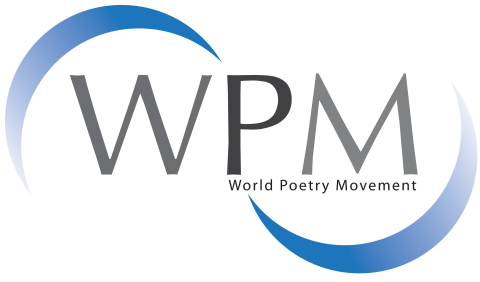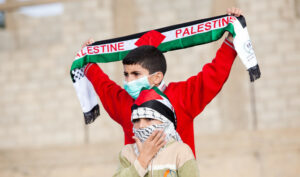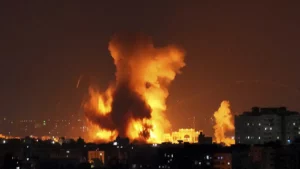By Jidi Majia
Chairman of Qinghai Lake Intl Poetry Festival
Deputy Chairman of All China Writers Association
Thanks to the wonderful organizing work on the part of the Organizing Committee, today the very fact that this choice group of poets travelled here from all quarters of the earth, summoned to take part in one of the most spectacular poetic pageants-Qinghai Lake International Poetry Festival—will make us all proudly cherish the five days to come, which will celebrate the magical gifts of poets and powers of poetry. Dear fellow poets, please don’t hesitate to give thunderous applause to this unusual gathering, radiant in our collective pride in being the poets we are. Doubly as Deputy Chairman of All China Writers Association and Chairman of this Festival, I must offer my warmest greetings to all the poets from home and abroad as well as my hearty gratitude to all the organizing staff.
What a victory for poetry this pageant is, my friends, with the wondrous essence of rallying around a poetic vision, when 120 special men and women, regardless of color or race or language or religion, congregate to witness poetry as a tool to push reform in society and to awaken conscience by opposing war for peace, evil for justice. Don’t for a second suppose that the Muse cares a whit for pomp and vanity, for she will certainly demand of us in return for her favor our collective sensitivity and spiritual attainment as agents to influence society and effect changes favorable to the promising future of mankind.
Friends, it’s been testified and corroborated by world history that this world of ours, this beautiful blue planet humans inhabit, can’t do and go around without poets. By this I simply mean all our technological gadgetry and our communications, marvelous providers of creature comforts and sustenance though they be, are not enough. Robots don’t bloom. Life can’t be governed mechanically or solely referenced to the audited accounts of a nation. Cold balance sheets and logic of alienation are no balm for our parched souls. While there’s so little optimistic in the way our age is shaping, one of hope mitigated by crisis, peace so fragile as to seem war and happiness at times blighted by catastrophe, we need poetry more than ever to serve as the personification of Goodness and Beauty. Jaroslav Seifert, the eminent Czech poet, writes with such eloquence even when he concentrates on small and intimate gestures:
Aren’t the creaking a cradle and the humming of a lullaby,
As well as bees swarming around a beehive,
More congenial a sight than bayonets and cannon balls?
Invoking such homely forces as bees and nursery songs as symbols of human needs, Seifert speaks on the behalf of us all.
Don’t think of me as an obtrusive doomsayer. In this very world of ours, fratricidal wars have raged on with disheartening human losses day in and day out. Displaced civilians fall prey to the wickedness and stupidity of warlords and politicians. Yet in the makeshift huts and refugee camps, their chests heave and resonate with the familiar tunes of their childhood lullabies, and with memorable lines of beloved national poets they invoke in their mother tongues, even in the direst hours and in the harshest alien milieu. No doubt, poems chanted from the bottom of their hearts prove the last buttress against hardship and tyranny.
Poetry still matters today. Although an element of eccentricity or anti-socialness might be present in all poets, good poets, who’ve achieved heroic statue since the Romantic Movement in the 18th century, have never lost their pull on the civilized populace. It’s such a paradox that poetry, unlike any other form of art, is capable of soaring through the celestial vault of metaphysics and reaching out for the starry heavens, while at the same time crawling on the tough terrain of reality, kisses the feet of a myriad working men and toiling women. No wonder Ernesto Cardenal, the marvelous Nicaraguan poet, associated poetic movements with the liberation of all oppressed nations, even 20 years ago.
Poetry is needed because in this prodigious age, capital’s barons and financial lords, masquerading as transnational businesses are moving to globalize the world by rapidly dissolving the social and economic barriers between nations and transforming the world’s diverse populations into a blandly uniform market at the expense of workers, the environment and traditional values. Such an invisible system of power increasingly tears apart our society instead of guiding it as we are alienated further from the natural world and source of life with which we were once in intimate contact. To counter such disempowering dangers, we poets must rise, with the magnetism of poetic expression, the presence and the representative voice of each poet here in the audience, to the majestic heights of opposing material forces with“soul force”by reawakening the solar spirit of poetry in the crowd and initiating a new socio-cultural renewal across our globe. The magical potential of poetry that fosters such transformation shall not be called into question.
Good poetry always matters because the solar spirit of poetry has always illuminated man’s pathway strewn with hazards. Poetry’s actually the vital dimension which sets mankind apart from other species, the essential element of mankind’s inner life. I can’t imagine what an infinitesimal bit of value would be left in human-made artifacts, unless inspired by the poetic spirit. When philosophers exhort us to inhabit the earth poetically, they’re proposing a recipe for happiness tailored for mankind, the secret of the sweetness of living from a higher vantage point, so to speak. Good poetry’s still in demand because, at long last, it’s become an affirmation of the deeply held human longing to return to where we came from. Only by upholding the torch of poetry can we divine the right direction, struggle from darkness to some measure of light and walk the right road back home, back to our spiritual home. At long last, the poem“grows into a praise of what is and what could be on this lump under the sky.”
Dear Fellow poets, although we face the difficulties of today, we’ve never lost our faith in tomorrow. Let’s jump for joy of living contemporaneously with such fabulously rich veins of poetry left to us by all great poets, living and dead, in the firm belief that poetry is the ultimate justification for mankind to look forward to tomorrow.
Jidi Majia is Chinese poet. He was born in 1961 and belongs to an ethnic minority of China, the Yi. He has published numerous poetic anthologies and won national literature awards. He is the President of the China Minority Literary Association and Permanent Vice-President of the China Poets’ Association.
His work has been translated into many languages, and he has been awarded numerous international prizes, including the Sholokhov Memorial Medal for Literature in 2006, and a Certificate for Outstanding Contributions in Poetry from the Bulgarian Writers Association that same year. In 2016 he received HOMER – The European Medal of Poetry and Art.
His book of poems My First Love won the National Poetry Prize of China. The Dream of a Yi native won the fourth Literary Prize of China Minorities for poetry. He is a president of the Qinghai International Poetry Festival, which succeeds on the shores of Asia’s largest lake, the Lake of the Gods, at the confluence of the Yellow River and the Yangtze.
Some of his books are: The Song of My First Love (Sichuan Nationalities Publishing House; 1985); The Dream of a Yi Native (China Nationalities Publishing House; 1990); The Sun in Rome (Sichuan Nationalities Publishing House; 1991); Selected Poems by Jidi Majia (published in Yi language; Sichuan Nationalities Publishing House; 1992); A Poetry Anthology of Jidi Majia (Sichuan Literature and Art Publishing House; 1992); The Buried Words (Guizhou People’s Publishing House;1998); A Selection of Jidi Majia’s Short Poems (Hong Kong Milky Way Press; 2003); Poems of Jidi Majia (Sichuan Literature and Art Publishing House; 2004);Time (Yunnan People’s Publishing House; 2006); Jidi Majia’s Poems and Essays (People’s Literature Publishing House; 2007); The Hawk’s Wings and the Sun (Writers Press, 2009); A Collection of Jidi Majia’s Speeches (Sichuan Literature and Art Publishing House; 2011); For the Land and Life (Qinghai People’s Publishing House; 2011); Poems of Jidi Majia (revised edition; Sichuan Literature and Art Publishing House; 2012); Identity (Jiangsu Literature and Art Publishing House; 2013); A Collections of Poems by Jidi Majia (Jiangsu Literature and Art Publishing House; 2013); Flames and Words (Foreign Language Teaching and Research Press; 2013); For the Land and Life (Foreign Language Teaching and Research Press; 2013); I Snow Leopard… (Foreign Language Teaching and Research Press; 2014); Between Snow Leopard and Mayakovsky (Yangtze River Literature and Art Publishing House; 2016); Poems Selected by Jidi Majia (Yunnan People’s Publishing House, 2017); Place Closest to White Clouds (Sino-culture Press, 2017); 24 Sonnets to Mother (China Children’s Press and Publication Group, 2017); Listen to get her with Mountains: Interviews with Jidi Majia (Jiangsu Phoenix Literature and Art Publishing,LTD).




